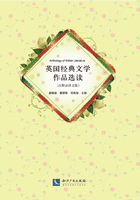
Unit 3 Francis Bacon (1561—1626)
Life
Francis Bacon, 1st Viscount St Alban, was an English philosopher, statesman, scientist, jurist, orator, and author. He served both as Attorney General and as Lord Chancellor of England. After his death, he remained extremely influential through his works, especially as philosophical advocate and practitioner of the scientific method during the scientific revolution.
Bacon has been called the father of empiricism. His works argued for the possibility of scientific knowledge based only upon inductive and careful observation of events in nature. Most importantly, he argued this could be achieved by use of a skeptical and methodical approach whereby scientists aim to avoid misleading themselves. While his own practical ideas about such a method, the Baconian method, did not have a long lasting influence, the general idea of the importance and possibility of a skeptical methodology makes Bacon the father of scientific method. This marked a new turn in the rhetorical and theoretical framework for science, the practical details of which are still central in debates about science and methodology today.

Bacon was generally neglected at court by Queen Elizabeth, but after the accession of King James I in 1603, Bacon was knighted. He was later created Baron Verulam in 1618 and Viscount St. Alban in 1621. Because he had no heirs, both titles became extinct upon his death in 1626, at 65 years of age. Bacon died of pneumonia, with one account by John Aubrey stating that he had contracted the condition while studying the effects of freezing on the preservation of meat.
Bacon's seminal work Novum Organum was influential in the 1630s and 1650s among scholars, in particular Sir Thomas Browne, who in his encyclopaedia Pseudodoxia Epidemica (1646—1672) frequently adheres to a Baconian approach to his scientific enquiries. During the Restoration, Bacon was commonly invoked as a guiding spirit of the Royal Society founded under Charles II in 1660. During the 18th-century French Enlightenment, Bacon's non-metaphysical approach to science became more influential than the dualism of his French contemporary Descartes, and was associated with criticism of the ancien regime. In 1733 Voltaireintroduced him to a French audience as the“father”of the scientific method, an understanding which had become widespread by the 1750s. In the 19th century his emphasis on induction was revived and developed by William Whewell, among others. He has been reputed as the“Father of Experimental Philosophy.”
He also wrote a long treatise on Medicine, History of Life and Death, with natural and experimental observations for the prolongation of life.
One of his biographers, the historian William Hepworth Dixon, states:“Bacon's influencein the modern world is so great that every man who rides in a train, sends a telegram, follows a steam plough, sits in an easy chair, crosses the channel or the Atlantic, eats a good dinner, enjoys a beautiful garden, or undergoes a painless surgical operation, owes him something.”
In 1902 Hugo von Hofmannsthal published a fictional letter addressed to Bacon and dated 1603, about a writer who is experiencing a crisis of language. Known as The Lord Chandos Letter, it has been proposed that Bacon was identified as its recipient as having laid the foundation for the work of scientists such as Ernst Mach, notable both for his academic distinction in the history and philosophy of the inductive sciences, and for his own contributions to physics.